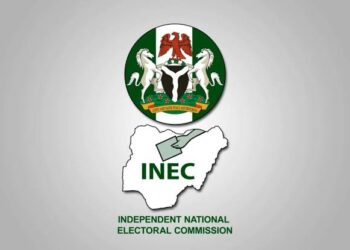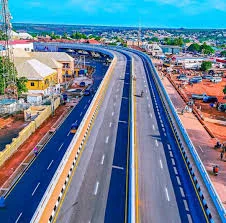As the race for the plum job of Speaker of the 10th House of Representatives gathers momentum, more politicians and groups have been supporting the candidacy of a member of the House representing Biu/Bayo/Shani Federal Constituency of Borno state, Hon Muktar Aliyu Betara.
One of these stakeholders is the immediate past vice chairman of Abuja Municipal Area Council (AMAC), Hon. Lawrence Onuchukwu. He has called on the ruling party to support Hon. Betara, who is currently the chairman, House Committee on Appropriation as its preferred choice for the Speakership seat.
Also, the Coalition of Pro-Democracy Groups in Nigeria has expressed support for Hon. Muktar Aliyu Betara. According to the Coalition, ‘‘When the 10th National Assembly formally convenes in June after the dissolution of the 9th Assembly, Betara has become a strong force to reckon with in his state and the National Assembly since winning elections for the first time in 2007.
‘‘The successes of the current budgeting system now in place by the federal government could be attributable to his efforts in the 9th Assembly that first sat on the 11th day of June 2019. As the current chairman of the appropriations committee, presiding over all other committees regarding appropriation and committees of both chambers for the budget and subsequent signing by the President, he worked so hard to ensure compliance by all organs of government. Betara indeed succeeded in causing the positive change from the June – June budget cycle to the much-preferred January to December for more effective oversight and implementation.
‘‘It was indeed during the period that the Appropriation Act 2022 and the 2022 Finance Act 2021 were passed and reenacted for the third year running with zero failure rate. This makes proper preparation and fiscal changes by stakeholders easier while implementing the budget. Having won elections again for the 10th Assembly which marks his fifth term under the ruling APC, the detribalised Betara whose impressive leadership character has endeared him to agencies and colleagues in the National Assembly, it will surely be fitting to elect him as the first among equals to lead his colleagues.
‘‘A party man to the core and nationalist, he has been consistent with presentations and contributions to national and international issues in the House, 2007, when he was first elected to the House he acted as the Chairman of the sub-committee on NDIC, Banking and Currency and equally serving as a member of the House Committee on Customs, Immigration and Prisons Pension Office. Again, when he returned to the 7th Assembly and following the collateral damage caused by the Boko Haram terror group, the House leadership was unanimous to select him as chairman of the committee on army where he made direct recommendations to empower and sustain the activities of the army against the rising insurgency in the north-eastern part of the country.’’
Both the People’s Democratic Party (PDP) and the All Progressives Congress (APC) as ruling parties have had their members in the National Assembly torpedo power in the 2011 and 2015 elections of presiding officers in both chambers.
In the year 2007 easily referred to as the 6th House of Representatives, the 360 members from the then-ruling PDP, ANPP and AD were initially led by Hon Patricia Olubunmi Etteh; a South-South Christian from Osun and Babangida Seidu Nguroje, a North- East Muslim from Taraba State before they bowed to pressure and threw in the towel following the rebellion against the leadership. The two leaders were believed to have been foisted on an unwilling House which kicked against the PDP. The party became helpless once the members from all the parties were unanimous to force them out. Thereafter, Honourable Oladimeji Sabur Bankole, the youngest Speaker from Ogun State and Honourable Bayero Nafada from Gombe state were elected to serve the House.
In 2011, members of the PDP, again, being in the majority ignored the party leadership to install Rt. Honourable Aminu Bello Tambuwal from the North-West as the speaker and Hon Emeka Ihedioha, from the South East as the deputy speaker against the choice of Hon Mulikat Akande from the South West.
However, as the Independent National Electoral Commission (INEC) completes the conduct of the 2023 elections at the federal and state levels, and with the composition of members from the parties now in numbers after handing over the certificate of return, it is getting clearer that as the jostle for the principal offices begins, the north-west has produced the most speakers of the House of Representatives, while the south-east and north-central zones have produced the most senate presidents and deputy senate presidents.





